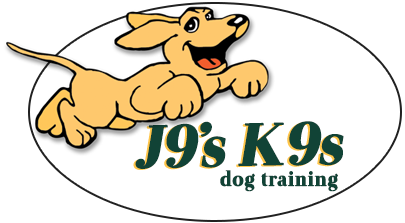New Year’s Resolutions for Dog Owners: Don’t Complain – TRAIN!

Making resolutions is about changing behavior. As dog lovers, we can include our furry friends in our resolution making for the year. Maybe you wish your dog wouldn’t jump on people, or would always come when called, or that he would stop chewing inappropriate items. However, before we can effectively change the problem behaviors of our canine companions, we must first be willing to change our behavior. Rather than focus on the problem (what you don’t want), focus on the solution: what you want your dog to do instead!
This can easily be done by making the following New Year’s Training Resolutions:
Rather than setting out to train your dog not to do things (jumping, chewing, running away, etc.), endeavor to train yourself to recognize what you’d like your dog to do instead and take the necessary steps to create and reward those behaviors. For example, rather than say, “I don’t want my dog to jump on visitors as they walk in the front door,” decide, “I want my dog to do a down-stay on a mat nearby as guests walk in.” Instead of, “I don’t want my dog to run away when I let him off the leash,” focus on, “I want my dog to come when I call him, even when he’s distracted.” Focusing on what you don’t want does little to improve the situation, and asking a dog not to do something doesn’t provide him with any useful information.
In human terms, it’s like hopping in a cab and telling the driver all the places you DON’T want to go. You certainly wouldn’t get very far that way! For every behavior we dislike in our dogs, we can identify an incompatible, alternate behavior we would prefer. Through training and management, we can set our dogs up to practice and be rewarded for behaviors we approve of, and in the process, find the original problem behavior has been greatly reduced or even eliminated. Why? Behaviors that are rewarded will be repeated.
If your dog is busy doing the right thing, there’s less time available to him to practice the wrong thing. Everybody wins! Being proactive is a cornerstone of good reinforcement-based training programs.
Effective and humane dog training is simple, but it’s not easy. It requires time, effort, patience, and above all, consistency. The following tips can help:
1. Know what you want. Think about how you’d like your dog to behave. What’s O.K.? What isn’t? Be sure to reach an agreement within the family. Nothing confuses a dog more than inconsistency.
2. Pick a realistic goal behavior and break it down. For example, if you decide you want your dog to hold a down-stay on his dog bed away from the front door, practice teaching him to run to his bed as a stand-alone exercise several times throughout the day, separate from the arrival of visitors. Do the same with lying down and staying on the bed. Reward generously with praise, petting and a food item your dog really loves.
3. Walk before you run! If your dog has seemingly mastered running to and staying on his dog bed when the house is quiet and you, the trainer, are the only real distraction, start increasing distractions slowly and at a level that keeps your dog successful. For example, recruit a friend to stand outside your front door and quietly knock, as you remind your dog to stay on his bed and reward him generously for doing so. Gradually increasing the strength of the knock, transitioning to ringing the doorbell, and opening the door while your friend stands outside (leash your dog for safety!) are all necessary steps to help teach your dog the final behavior. Skipping steps is sloppy training and is unfair to your dog!
4. Set everyone up for success. As you train the new behavior, make every effort to prevent your dog from practicing the old, unwanted behavior. When guests arrive and you aren’t able to practice your new training program, be prepared to manage the problem by using a leash, tether, crate or baby gate to keep your dog from jumping. Either actively train for what you want, or prevent the rehearsal of what you don’t.
5. Behavior doesn’t change overnight. Think in terms of weeks and months, not days and weeks. Be patient and consistent. By focusing your efforts on training what you want and preventing what you don’t, you’ll increase the opportunities to reward correct behavior (thus ensuring its recurrence), and spend less time and energy reprimanding your dog for doing the wrong things.
Happy training from all your friends at J9’s K9s Dog Training!

